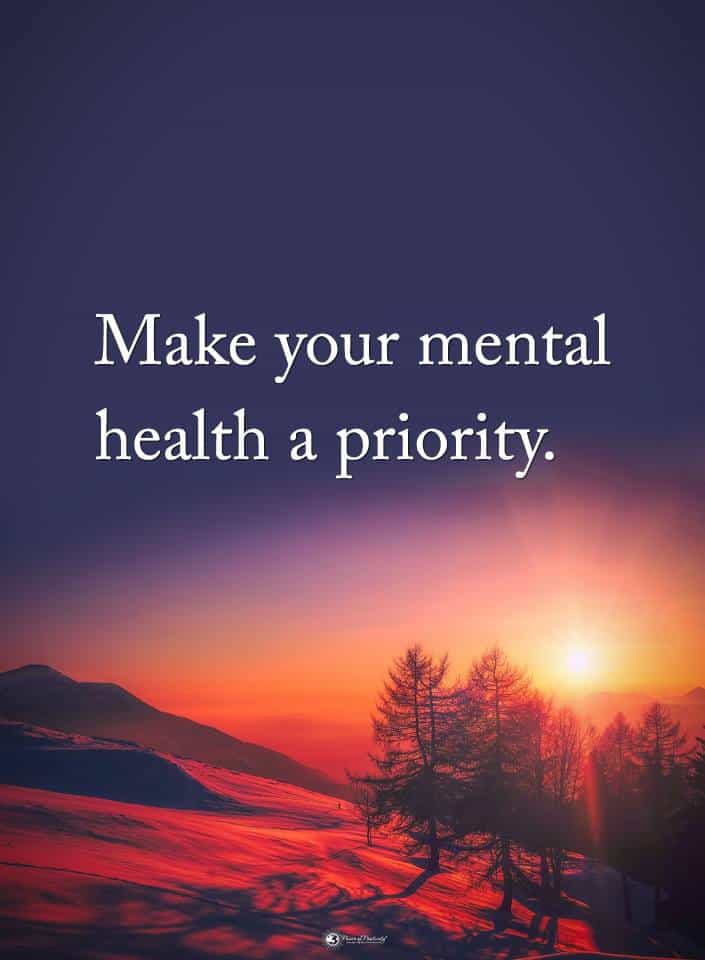Do you struggle to think positively? Are you a huge critic of yourself? Do you tend to be excessively negative? These things can feel crippling and contribute to symptoms of depression and anxiety while adding a lot of stress to your life. They’re a product of poor mental health habits that don’t serve you or your life in any positive way.
But there’s good news! You can unlearn these harmful patterns by replacing them with healthier habits that boost your well-being and provide more encouragement than critique. Here are four mental health habits that increase positive thinking.
Mental Health Habits #1 – Gratitude
Gratitude is not just a trait. It’s also a skill. Many people falsely believe that being thankful is part of someone’s temperament, so you’ll never be one if you’re not a grateful person. This is not true at all. In reality, gratitude is something trainable, and it’s one of the mental health habits that is very much worth the effort.
Studies show that high levels of gratitude can increase your health and happiness throughout your life on a long-term level. Better yet, gratitude is self-perpetuating. The more you practice gratitude, the easier it will be to continue being grateful. The more you find things to appreciate, the more naturally those things will stand out to you. Regarding mental health habits, it’s the gift that keeps giving.
Here are some of the best ways to practice gratitude to increase positive thinking.
· Increase The Frequency With Which You Say “Thank You.”
If you’re well-mannered, you likely already say “thank you” to many people. But do you always mean it 100% every time you say it, or is it more of a thoughtless routine? Make an effort to actively be genuinely grateful every time you say “thank you.” Consider the value these individuals add to your life and appreciate their efforts. Please take note of small things that the people in your life do for you every day that you’ve grown accustomed to and make it a habit to thank them.
· Volunteer For A Charitable Cause
There are many charitable groups in the world and a fair number likely fight for causes you believe in. Take some time out to regularly volunteer with these groups. Research shows that this will make you much happier in life! Volunteering for an hour or two once a week or every two weeks can work wonders. Many forms of volunteer work serve as positive mental health habits and great ways to help other people, so it’s a win-win on a large scale.
Look For Things To Be Grateful About
Sometimes, it’s hard to find reasons to be grateful, but you can also seek them out if you try hard enough. One of the best mental health habits is looking for silver linings in everything around you. Mindfully appreciate your favorite things and note how much you like them and what you like. Seek out the positive side of every bad situation. Appreciate even the things that you know you deserve to have. Romanticize life and find something to be grateful for every day! Some people benefit from keeping a gratitude journal that they fill in as part of their daily routine.
Mental Health Habits #2 – Meditate
It sounds cliche, but meditation is one of the best mental health habits to add to your daily routine. Studies indicate that it can improve your mental health by reducing stress and anxiety and boosting your ability to regulate and process emotions to manageable interpretations.
Meditation isn’t just about sitting quietly and “emptying your mind,” despite its stereotypes. Most forms of meditation require an understanding of mindfulness. Mindfulness is being present, focusing on the here and now, not the past or future.
You can meditate in lots of different ways. Here are a few standard methods.
· Visualization
In a simple and effective meditation style, visualization means imagining or envisioning your desired outcomes and states of mind. This can be anything from imagining yourself succeeding at a massive goal to imagining yourself feeling happy and at peace. This works well because your brain often has trouble differentiating reality from imagination. When you imagine these things, your brain genuinely believes in them, making you think you can do anything and filling you with positive thinking. Research indicates that visualization skills help to boost optimism and resilience, and they’re among mental health habits capable of retraining your current mindset to something better!
· Body Scan Meditation
As its name suggests, a body scan involves you “scanning” your body for signs of different forms of stress and emotion. Essentially, you sit or lie in a comfortable position and stay still. Then, you move your attention and focus from one body part to the next, starting from your toes and making your way up one piece at a time until you get to your head. During this process, you notice the different things that each body part feels: tension, discomfort, pain, or even relaxation. Doing this allows you to understand better your physical body and how it works in different situations, which helps in your ability to regulate emotions for better positive thinking.
· Witness Consciousness
This unique practice is among the mental health habits that fall under mindfulness. To perform it, you actively choose to “witness” your various thoughts and emotions, accepting different sensory information without reacting to or judging them. The goal is to watch them as you would watch birds in the sky – as a separate third party. When you get better at this, you can view your feelings when processing them, which can improve positive thinking. You no longer define yourself by your emotions or get overwhelmed by them and can think and feel freely instead.

Mental Health Habits #3 – Seek Out Inspiration
There’s nothing wrong with doing things just for doing them. But if you want to incorporate good mental health habits for positive thinking in your life, it’s good to find something to be actively inspired by.
This doesn’t mean seeking external validation from others. Instead, it refers to finding internal fuel that keeps you going from the inside. When you do this, you’ll think much more positively and have a mindset geared towards improvement and growth. That, in turn, boosts your confidence and keeps you happy. Here are some ways to do this!
· Find Inspiration Everywhere
There are so many things that can serve as fuel for your motivation. Fiction, famous figures, art, the news, real stories, and the people around you can all be sources of inspiration. The goal isn’t to compare yourself to these things but to aspire to learn from them and use those lessons in your own life. That kind of inspiration is never in short supply, so expose yourself to new things to find more sources!
· Fill Your Life With Good People Who Have Good Mental Health Habits
Positive people create a positive environment conducive to good mental health habits. You’ll be inspired by others and encourage them in turn. Think of all the motivation and support you can get from a positive social circle. You’ll also benefit from friendly competition, new perspectives, and more, all of which will further boost your mental health. If you don’t have many close people, you can make friends in clubs and groups by volunteering at charitable organizations and seeking communities to make friends!
· Make Great Goals
It’s easy to stagnate when you’re not challenging yourself with new goals. It’s okay to take it easy, but you should always have something that you’re working towards in the long run. Measurable, reasonable, and challenging goals can motivate you, giving you something to strive for. A mix of long-term and short-term goals keep you sharp, and you get to congratulate yourself after each goal you meet to boost your confidence. You get to learn new lessons from each plan you move towards.
Mental Health Habits #4 – Use Positive Self-Talk To Counter Your Negativity
Often, you will be your own worst enemy regarding your mental health. Few things are as harsh and cruel as your inner critic can be. Having seen yourself at all your lowest moments, it’s easy to judge yourself, even when you’d never do that to someone else in your position.
This is why countering your negativity is one of the most critical mental health habits that can improve your life and outlook on the world. Teaching yourself how to respond to negativity as it arises in your mind is crucial to happiness and life satisfaction.
That’s not to say that some negativity doesn’t have its place. It’s good to process and allow yourself to feel negative emotions when they come along. And it’s also good to be reasonable, address your mistakes, and admit to the dire situations in life. But that negativity should not focus on your everyday world and existence.
This is where positive self-talk comes in. Positive self-talk means using positive statements to talk about yourself. This teaches your subconscious to internalize positive rather than negative things about you. Essentially, this involves replacing negative critical voices in your head with reasonable and positive ones by pausing to respond to essential thoughts. Research shows that this is a big player in boosting your happiness and mental well-being.
Positive self-talk means reframing negative statements by seeking their silver linings. For example, your inner critic might say, “I sucked so badly at that presentation! I’m going to get fired!”. You can respond with positive self-talk by saying, “I did the best that I could, and I’ve learned how to do better next time. One bad day isn’t the end of the world. I’m a good worker, and this doesn’t overshadow my capabilities and successes!”
Final Thoughts on Some Habits That Improve Your Mental Health Habits
Positive thinking is a crucial component of a healthy and happy life. Without it, it can be challenging to feel encouraged and inspired every day. Good mental health habits can boost your well-being and help improve your life in huge ways!




















